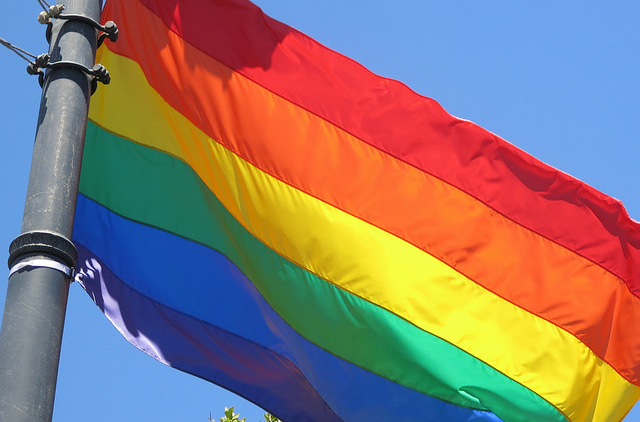Whether you’re a fan or not, it’s a known reality that football culture is steeped in toxic masculinity. From little league to high school to college ball and the NFL, I’ve grown up watching coaches belittle their players during practice and on the field, parents advise their sons to embrace toughness and shun emotions if they want to someday be like their athlete heroes, and that most importantly—society saying that football players are examples of real men.
When you play sports, you get a lot of advice on what it means to be a real man.
Real men don’t cry. Real men are aggressive. Real men take that hit without a complaint. And real men definitely don’t kiss other men.
It’s not a secret that professional sports have a problem with homophobia, and a lot of it is highly publicized. I’ll never forget Chris Culliver saying, on national TV, that he wouldn’t want a gay teammate. His exact quote was that they “can’t have that sweet stuff.” A year ago, Odell Beckham was subjected to constant homophobic slurs and attacks both on and off the field, leading to on-field clashes, and the NFL did nothing.
There was also Michael Sam, the first openly gay player to be drafted into the NFL who credits his lack of being signed on his sexuality, and the recent story of Ryan O’Callaghan. O’Callaghan was an offensive lineman for the Chiefs who nearly took his own life due to the trauma of being closeted and alone for his entire career and earlier.
I knew all this when I began writing a queer football romance, and I knew it wasn’t something I could ignore. Do we need more stories of queer characters who go through hell and endure constant homophobia to get their happily ever afters? Hell. No. But could I write out the reality of this particular struggle while writing about professional athletes who identify as gay and bisexual? I didn’t think so, so I tackled the issue by ensuring my characters were not isolated. My rough-and-tumble bisexual tight end has allies, and his best friend (and quarterback) is a closeted gay man.
There’s a tendency in queer romances—and any media featuring a queer main character—for that character to be completely isolated from the world or to only have straight friends. This doesn’t work for me on a grand scale, but it definitely doesn’t work for me when a fictional plot calls for a character who is forced into the closet. As a writer, we have full control over the worlds we create, and it shows if we deliberately create situations that will ensure marginalized people suffer. It’s difficult enough to have a profession that ensures you remain closeted, but creating a queer character who doesn’t know anyone like them is extremely harmful.
I fully expect some folks to find Illegal Contact unrealistic because there are two starting players on the same team who are queer, but my response is: how likely is it that a roster of 53 men are all straight? And if they’re not all straight, do you think it’s very unlikely that two queer people would manage to find each other and bond over their mutual secret?
Gavin Brawley would be a very different character if he didn’t have his two best friends: Simeon (the charming gay quarterback) and Marcus (the running back and a die-hard ally). I tried to imagine what he would be like without people he could trust and talk to, and stopped myself. Why imagine the worst when I have the power to create a world where things are better?
(image: Flickr/torbak hopper)
Want more stories like this? Become a subscriber and support the site!
—The Mary Sue has a strict comment policy that forbids, but is not limited to, personal insults toward anyone, hate speech, and trolling.—









Published: Aug 16, 2017 02:16 pm